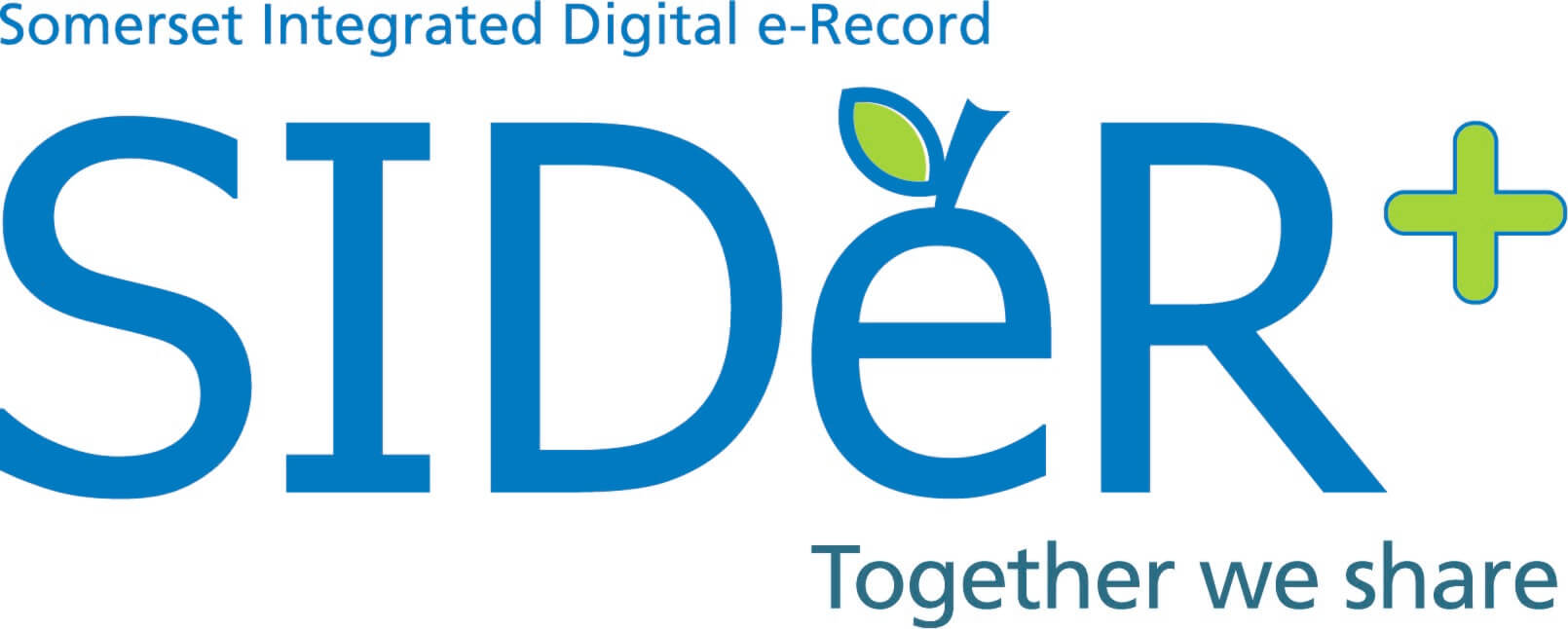SIDeR+
SIDeR+ (Somerset Integrated Digital e-Record) is the Somerset Shared Care Record system.
What is SIDeR+?
SIDeR+ stands for the Somerset Integrated Digital e-Record, a shared care record system, which gives an overview of your health and social care information in one digital record. SIDeR+ is the second contract period for our Somerset Shared Care Record and a number of enhancements will be released over the next five years.
Information available to health and care staff via SIDeR+ is not stored anywhere and is read-only. Only an audit trail remains once the page has been closed.
The SIDeR+ Shared Care Record was launched in November 2020 and is now live with information from all Somerset GP Practices, Somerset NHS Foundation Trust (Musgrove Park Hospital, Yeovil District Hospital, community and mental health services), Somerset Council Adult and Children's Social Care, Public Health Nursing, The Blackdown Practice in Devon, 8 border Dorset GP Practices, and St Margaret’s Hospice. It also holds a number of Care Plans so that all teams involved in a person’s care know what matters to them most and how they would like to be treated.
Access to SIDeR+ is available to all aforementioned organisations plus University Hospital Bristol and Weston, some wards at Dorset County Hospital, some community pharmacies, and Continuing Healthcare and Safeguarding Teams at NHS Somerset ICB.
A shared care record is a fundamental part of the NHS Long Term Plan. GP practices, acute and community hospitals, community health, mental health, hospice and social care teams could all hold important information about your care but this is often not immediately available to people working in other parts of the local NHS and care community.
SIDeR+ ensures the right information is available to the right person, at the right time, enabling health and social care professionals in Somerset to see the most up-to-date information about you when you attend to receive care.
For more information on SIDeR+ and how it benefits people in Somerset, watch the short video: Together We Care.

Why share?
Information from across the NHS in Somerset plus Somerset Council and St Margaret’s Hospice is available 24 hours a day, reducing a large amount of time spent checking details from multiple sources and/or delaying the most appropriate treatment (e.g. for example, when a GP practice is not open at the time).
Better sharing of information between health and care professionals (for example, family doctors, hospitals, community and mental health teams as well as hospice and social care staff) can deliver significant benefits, including:
- Not having to keep repeating your medical or social care history
- They have access to the right information when they need it
- Reduce duplicate appointments and tests
- Receive the right treatment and care more quickly
- Reduce the need for unplanned hospital admissions.
Benefits for social care include:
- Help to improve hospital discharge planning
- Inform support and care in the community to help keep you independent
- Time saved searching for information and understanding the situation when you first contact social care.
Other benefits include:
- People not having to repeat the same information as often to different people when being seen for a health or care problem
- Time savings from trying to find out who is involved with you and your family, no need for a series of phone calls or delays in seeking additional information
- Ability to understand the timeline of interventions across services/organisations
- A way to share significant events/changes in your situation with other health and care professionals
- Better access to information to inform decision making, ensuring you receive exactly the right kind of care and support you need
- Better chance of preventing avoidable health problems.
Read more about SIDeR+ here or download our public facing leaflet below.


